How a Hampton Beach business partnership is changing lives for Lakota women
HAMPTON — Enola Running Hawk said life can be challenging on the Pine Ridge Reservation, where work is hard to find and Lakota people continue to face racism.
“My experience out here is way different,” said Running Hawk, 19, who has grown up on the reservation in South Dakota. She is working this summer at Hampton Beach at the Boardwalk Inn and Café. The experience so far has already helped her build a resume that got her a barista job near her college.
“Back home, like I said, we don’t have that experience,” Running Hawk said. “It really is a good trade for us.”
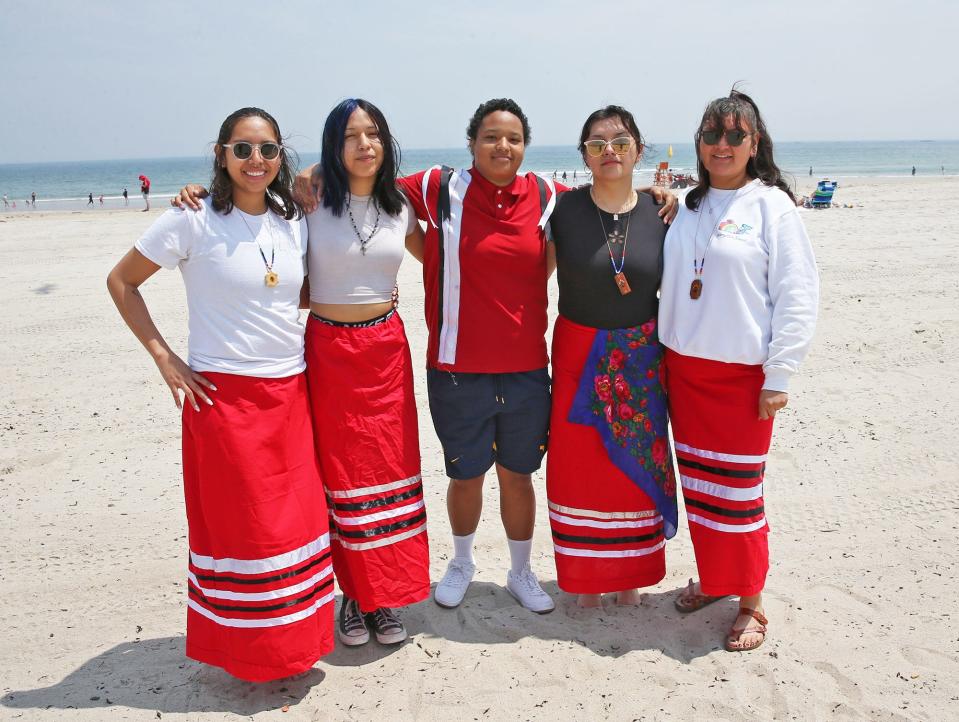
The other beneficary in that trade is the Hampton business community, which is receiving Lakota seasonal workers through a partnership between the Hampton Area Chamber of Commerce and the organization One Spirit.
The trade — labor for experience — was initially an economic initiative to fill jobs amid an ongoing workforce shortage. Chamber President John Nyhan said the relationship has grown into a cultural exchange built on help and friendship.
“I can tell you that that has now gone beyond a workforce issue. It’s an education issue,” Nyhan said. “I have learned so much.”
One Spirit connects Lakota with Hampton Beach
One Spirit works with the Lakota people on Pine Ridge to improve their living conditions and opportunities. Nine workers came to Hampton last year as a trial, and this year seven have come through One Spirit — four working at New Hampshire State Parks and three at the Boardwalk Inn and Café.
One Spirit has worked with the Lakota on Pine Ridge Reservation in South Dakota for more than 15 years on improving the community for the Native American people that live there. The work includes helping provide food, supporting Lakota youth and creating business and job opportunities.
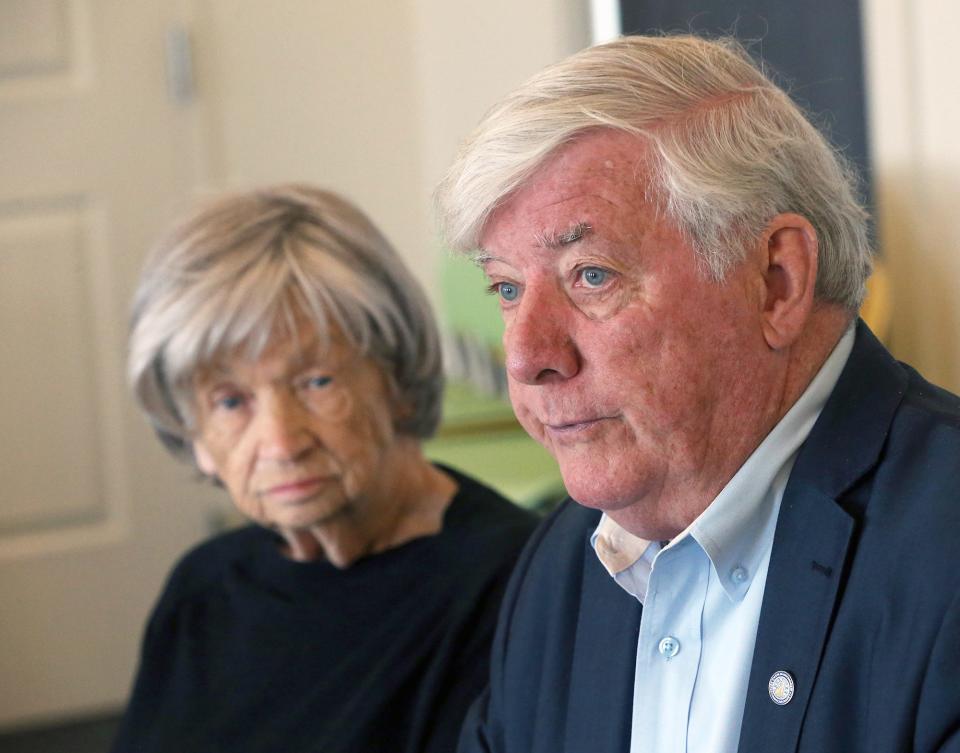
Through donations, One Spirit works with Lakota on solutions that reflect the culture, according to Executive Director Jeri Baker. They have worked since 2016 on building a buffalo house where meat and remains of the animal can be processed in the Lakota tradition.
Baker was contacted last year by Hampton’s Ute Pineo, who owns Al Gauron Luncheonette and supports many local charities. She suggested to the chamber that they collaborate with One Spirit on bringing workers to New Hampshire to address staffing shortages.
The program in its pilot form last year was a success for both the Lakota and the businesses. Running Hawk is returning through One Spirit, joined by her older sister. Traci Schaake, manager at the Boardwalk Café, said one Lakota member has also returned on their own to work for her again.
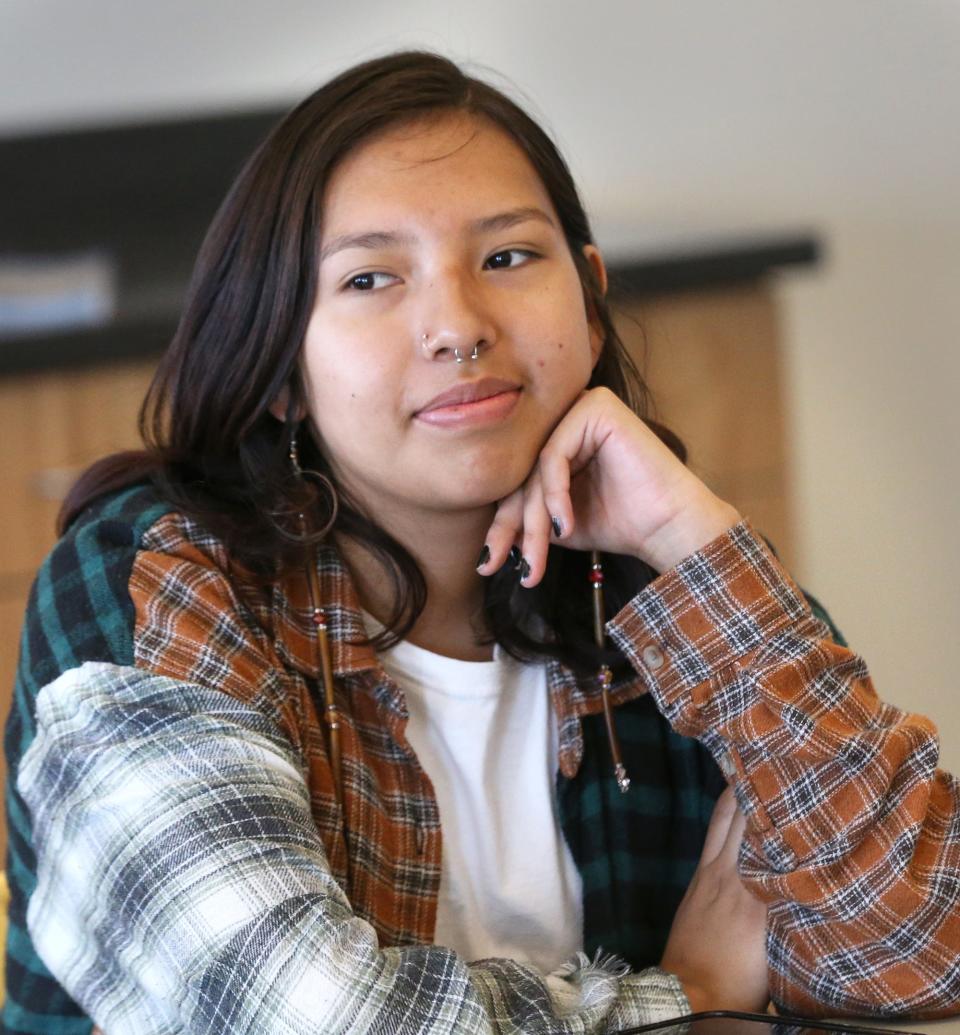
Running Hawk described her time in Hampton as an escape from a place where, despite great cultural pride, the Lakota people struggle with economics and racism. Pine Ridge, established in 1886, has a population of almost 20,000 people living in nine districts spread across the reservation’s 3,469 square miles.
The unemployment rate in Pine Ridge is 90%, and the high school dropout rate is 70%, according to the True Sioux Hope Foundation. The death rate is 300% higher than the remaining U.S. population, and the average life expectancy there is 52 years old for women, and 47 years for men, according to the organization.
Running Hawk said many Lakota are frustrated to live with the effects of what the U.S. government did to the indigenous people in the 1800s. She said South Dakota still has significant racism and few resources for the Lakota people.
“We got pushed to this very secluded space where it was, ‘This is where your people are, this is where you guys live and you guys make the best of it,'” Running Hawk said. “It’s been that, going on now to this day.”
What the Lakota lack in resources, Running Hawk said, they make up with culture and community. The Lakota remain dedicated to their heritage, she said, and have some tourism through businesses like trading posts. Running Hawk said she and many others are skilled at making traditional jewelry and clothing like ribbon shirts and skirts.
“Back home you’ll hear us say we’re rich in culture because it’s true,” Running Hawk said. “We may not have everything, but we have our people.”
Lakota are also typically resourceful, she said. Many refer to their vehicles as “Rez bombers,” – cars Running Hawk said Lakota learn to fix for themselves for lack of repair and towing services.
“I have a dad who taught us how,” Running Hawk said. “We don’t have options to go get your car fixed.”
Hampton Beach Sand Sculpting Classic: What you need to know
Hampton Beach welcoming to Pine Ridge Reservation members
Coming to Hampton Beach, Running Hawk said she enjoys the opportunity to work and travel. She said right now she is a receptionist at the Boardwalk’s inn. She is also looking forward to getting experience this summer at the establishment’s restaurant as a host and server.
To help the Lakota settle into Hampton Beach, the chamber has collaborated with a local hotel owner to put them up for the season in two apartments within walking distance of their workplaces. Rusty Bridle, an elected town selectman who works part-time for the chamber, also raised $1,000 in meats, vegetables, canned food, pasta and other items for the Lakota. He said they also coordinate trips to department stores so they can easily get what they need.
The chamber also works with the organization Native American Jump Start, which helps indigenous people prepare for jobs and acquire items like clothing and bus and plane tickets. Ray Southworth, a board member for the nonprofit, said he worked with the Lakota women heading for New Hampshire before they came to talk about what to expect on Hampton’s bustling boulevard.
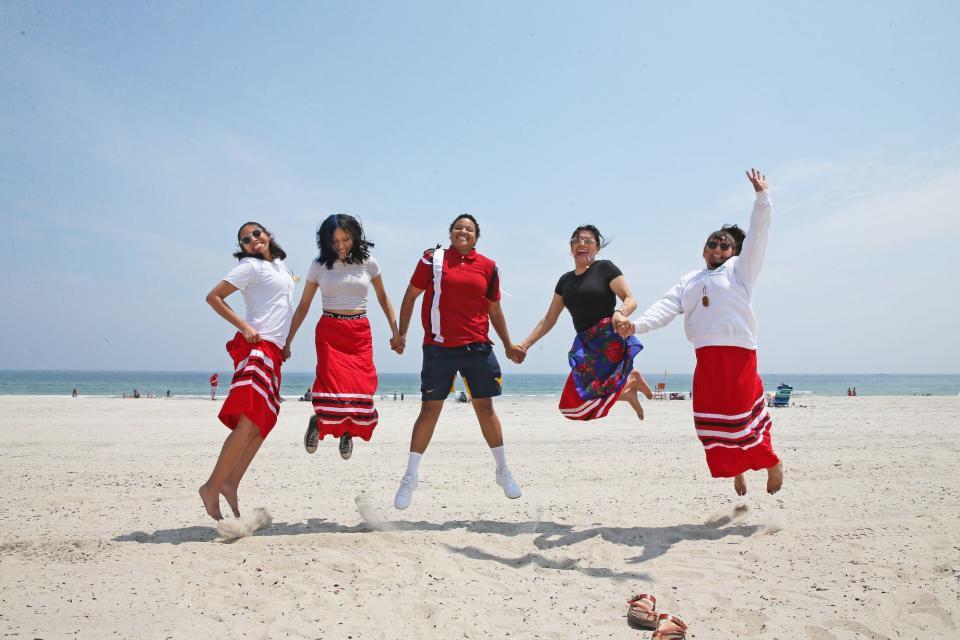
“When you drop them into Hampton Beach with 100,000 people on Memorial Day weekend — for anybody, it’s a mind-altering thing,” Southworth said. “My job is to go out there and talk expectations.”
Running Hawk said she has fit in well at Hampton Beach. For one, she loves walking across the street from where she lives to step on the sand and visit the ocean.
The people who visit and live at Hampton Beach, she said, are incredibly welcoming as well. She said many admit they know little about life on the reservation.
“Some people are like, ‘Hey, do you guys still live in a teepee?’ ‘Oh, you guys are still here?’” Running Hawk said.
Unlike what she experiences with white people from South Dakota, however, she said people are eager to learn.
“My experience out here is way different,” Running Hawk said. “They’re interested. Back home, it’s not like that. I can promise you.”
She also has found solidarity with foreign workers who come through the J-1 visa program from countries like Serbia, Romania, Turkey and Jamaica. The beach has relied on foreign workers for years, previously including many from Ireland in restaurant and hotel jobs.
Having diversity, she said, makes it a little easier to feel included.
“We’ll just have these days or evenings where we’ll go out on our porch, and we’ll visit, exchange cultural differences,” Running Hawk said. “It’s really nice to have that experience out here.”
Hampton Beach lost and found: How a Michigan man's ICP ring lost at sea returned to him
Chamber looking to expand One Spirit workforce program
Nyhan said the program with One Spirit has served its original purpose of bringing much-needed jobs to the beach.
He said when news got out that Hampton was benefitting from the program, his phone was ringing off the hook with calls from business owners around the state about connecting with One Spirit as well.
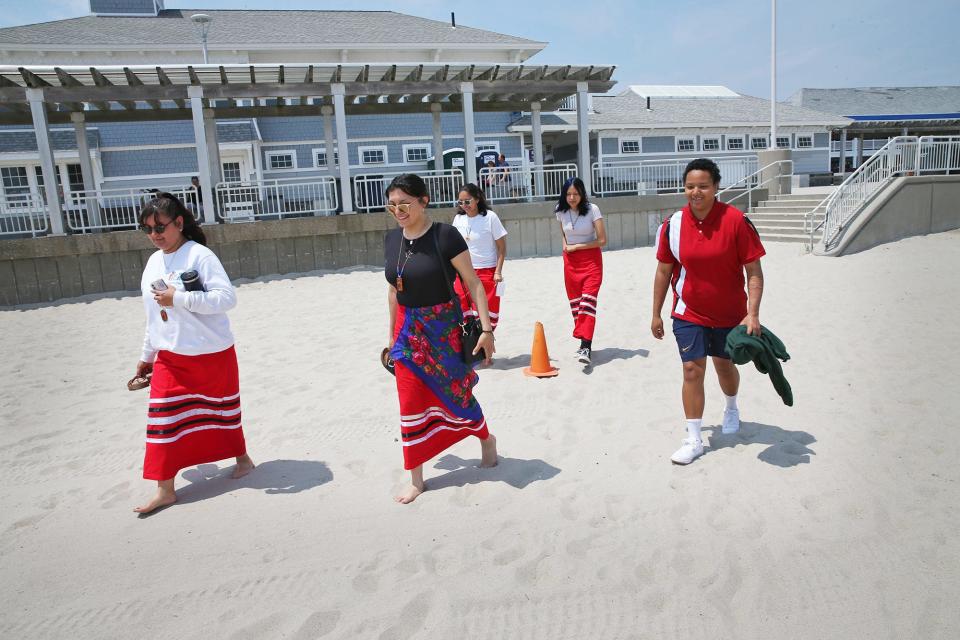
Nyhan said there is now potential for a statewide expansion of the program that started on Ocean Boulevard. He is going to Washington, D.C., this month to seek grant money that could go towards that expansion.
Bridle said getting to know the Lakota workers has been a joy and eye-opening. Last year he also coordinated parasailing, whale watches and other activities found in to Hampton to make them feel at home.
“We want to make them feel like they’re part of our community,” Bridle said. “And they are a part of our community.”
This article originally appeared on Portsmouth Herald: Lakota workers find hope and opportunity at Hampton Beach, NH

